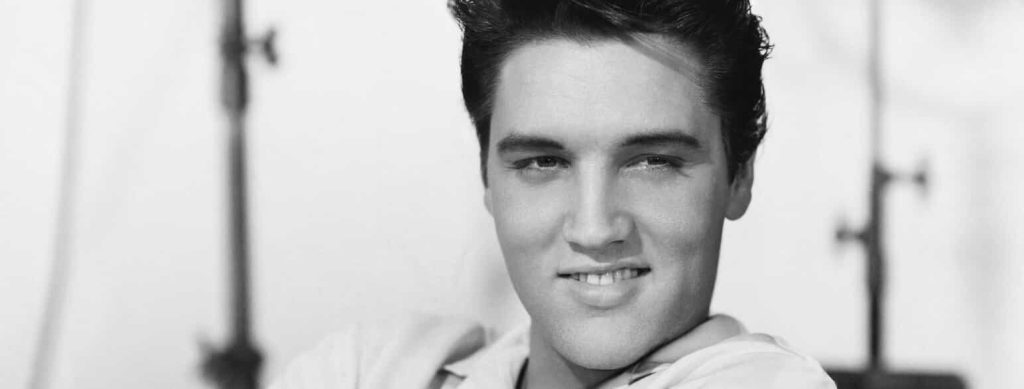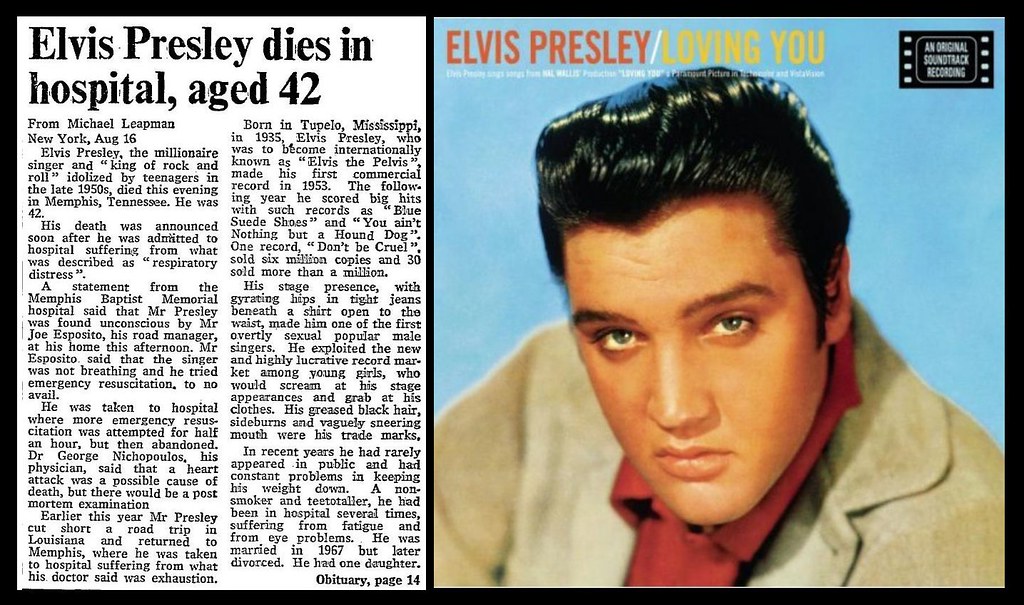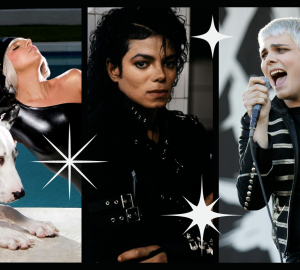The true story of Elvis Presley’s death, in wake of new biopic
Baz Luhrman’s “Elvis” premiered last week, and after its record-breaking twelve-minute standing ovation at this year’s Cannes Film Festival, expectations were high. So far, the film has gathered mixed reviews, with both sides of the spectrum being represented by critics. The general consensus is that Austin Butler, the former Nickelodeon and Disney star, was able to deliver a strong and compelling performance as Elvis Presley. With truly great vocals, a genuine accent and an overall heartfelt rendition of the star, Butler delivered one of the most accurate Elvis Presleys to hit the screens. However, this can’t cover up one of the film’s biggest pitfalls… the liberties that it takes while detailing the turbulence of Elvis’ life.
In other words, why did “Elvis” (2022) brush over Elvis Presley’s drug addiction?

PBS once called it “the perfect prescription for early death.” If you take a star who’s starting to lose his shine and combine it with a never-ending tour schedule and all the money in the world, you’re sure to run into problems. Elvis’ problem, in specific, was prescription medication abuse. Although he was able to hide his pill habit for years, bits and pieces of information began popping up to the public near the late 60s and early 70s.
It was ugly. Following a divorce from his wife Priscilla, things were falling apart for Elvis. In 1973, he overdosed on barbiturates twice and was then hospitalized in a semi-comatose state from Demerol addiction. However, despite the obvious severity of the situation, Elvis didn’t see his behavior as an addiction. Instead, he “felt that by getting drugs from a doctor, he wasn’t the common everyday junkie getting something off the street.”
During this time, he was also following a rigorous tour schedule, which many believe was his biggest stressor. From mid-March 1973 to the end of June 1974, Elvis performed 168 concerts, the longest tour of his career. Despite the obvious work he was putting in, fans, along with journalists, were starting to notice his decline. “Watching Elvis at the Long Beach Arena Sunday night was like watching a parody of a dying legend,” wrote reviewer Denise Kusel, “Mostly it was like watching a chubby puppet wrapped in a double chin and a foreign body work through a series of Elvis songs. But heroes die and even the best sunrise melts into sunset and then darkness.”
Over his next few tours, the hiccups were becoming more frequent. Next to his increasing weight, crowds were given glimpses inside their idol’s rocky private life. Shows started ending earlier, with dwindling charisma from the man who used to embody the word. Eventually, Elvis’s concerts turned into sad performances, with fans watching on as he stumbled around on stage as if “every movement pained him.”
But Elvis’ primetime wasn’t like today, where every little moment (ahem, President Biden falling off his bike) is captured on camera and shared in real-time. Back then, if you experienced a breathtaking celebrity moment, the most you could do is tell a friend and hope that word of mouth got around. As Elvis’ life was tumbling down, there was not much that onlookers could do. Journalists tried publishing exposes about his habits and former bodyguards even wrote an entire book titled “Elvis, What Happened?” All saw little attention.
This was an artist that was past celebrity status. He was bigger than that, stronger. In every sense of the word, Elvis was “The King,” and the image of an obese, intoxicated man didn’t fit what fans wanted to see. By 1977, Elvis’ bad boy image from 20 years past had worn off. He was your mom’s favorite artist now, crooning to crowds of blue-haired women, coasting on legacy. The whole drug thing didn’t key into the story, so it was ignored by the fans… even when it got rough.
“He was all gut. He was slurring. He was so fucked up. … It was obvious he was drugged,” said guitarist John Wilkinson, who remembered back to a particularly rough concert at the University of Maryland. “It was obvious there was something terribly wrong with his body. It was so bad the words to the songs were barely intelligible. … I remember crying. He could barely get through the introductions.”
Towards the end, Elvis was taking everything he could get his hands on including barbiturates, opiates, sedatives and laxatives. In fact, he had been prescribed 19,000 doses of drugs, with 10,000 being written in his last year of life by Dr. George Nichopoulos. Commonly known as “Dr. Nick,” Nichopoulos kept Elvis on a steady stream of prescriptions until his death.
On August 16, 1977, Elvis’ fiancée, Ginger Alden found him unresponsive in their bathroom. “Elvis looked as if his entire body had completely frozen in a seated position then fallen forward,” Alden said when recalling that afternoon. “His legs were bent, the upper part of his chest and shoulders touched the ground and his head was slightly turned to the left with his cheek resting on the floor.”
He was quickly taken by ambulance to Baptist Memorial Hospital and, despite attempts to resuscitate him, Elvis Presley was pronounced dead at 3:30 PM.

Immediately after his passing, his family requested a private autopsy. Eight doctors conducted the procedure, where they conducted, in their words, “the most painstakingly complete autopsy they had ever done.” Even so, they couldn’t determine an official cause of death.
However, that didn’t stop Dr. Jerry Francisco, Memphis medical examiner, from announcing Elvis’ official cause of death to the press. Despite the fact he didn’t conduct the autopsy himself and was instead an observer, he still reported that Elvis died from cardiac arrhythmia.
Meanwhile, the team of medical examiners disagreed with the announcement, vouching that although Elvis was unhealthy, he was years away from cardiac arrest. However, when asked if drugs were involved, Francisco declared that “drugs played no role in his death.”
When his death broke, it was the biggest news story for weeks. Thousands of fans gathered outside of Graceland, mourning just steps away from his front door. Sure, they knew that Elvis wasn’t looking his best recently, but how could it be this bad? It couldn’t be drugs, could it? Surely he was just suffering from other problems. Even today, certain fans cannot bring themselves to believe that Elvis died from an overdose on prescription drugs.
Looking back, the coverup seems obvious. This was the “King of Rock and Roll,” beloved by all ages, races and creeds. In many ways, he represented what America was during the mid-century. His death was like saying goodbye to the golden age of America. With Elvis being dead, the final chapter of “The American Dream” had been closed.
Elvis is currently playing, only in theatres. For your nearest location, click here.























